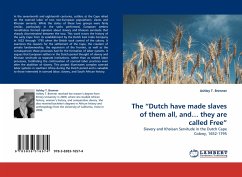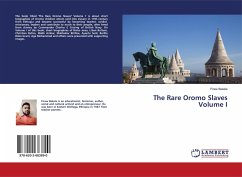In the seventeenth and eighteenth centuries, settlers at the Cape relied on the coerced labor of two non-European populations: slaves and Khoisan servants. While the status of these two groups were fairly similar, particularly in the tasks performed, European settlers nonetheless formed opinions about slavery and Khoisan servitude that sharply discriminated between the two. This work traces the history of the early Cape from its establishment by the Dutch East India Company in 1652 through 1795 when the British took control of the colony. It examines the reasons for the settlement of the Cape, the creation of private landownership, the expansion of the frontier, as well as the consequences these processes had for the formation of labor systems. It argues that European settlers in the Dutch period thought of slavery and Khoisan servitude as separate institutions, rather than as related labor processes, facilitating the continuation of coerced labor practices even after the abolition of slavery. This project illuminates complex coerced labor systems in southern Africa during the Dutch period and is valuable to those interested in coerced labor, slavery, and South African history.
Bitte wählen Sie Ihr Anliegen aus.
Rechnungen
Retourenschein anfordern
Bestellstatus
Storno








